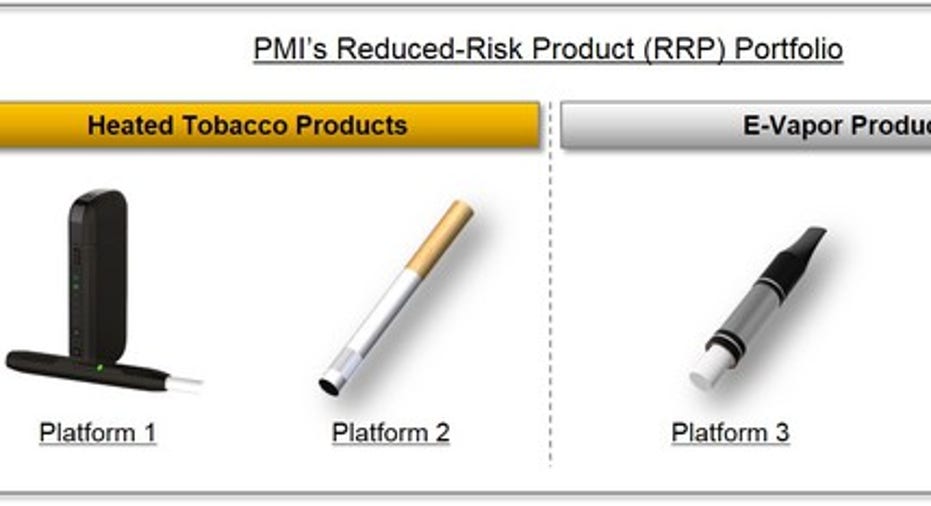Could Warren Buffett Finally Invest in Philip Morris International?

Warren Buffett has touted the profit potential of cigarette companies, and that would seem to make stocks like Philip Morris International (NYSE: PM) and Altria Group (NYSE: MO) obvious picks for the Oracle of Omaha. Yet thus far, Buffett hasn't touched either of the tobacco giants, despite the impressive returns the two stocks have earned over the course of their respective histories. Buffett has a good reason for that, but steps that Philip Morris International in particular has taken recently could turn the anti-tobacco argument on its head and justify an investment at some point in the future.
Why Buffett has never bought Altria or Philip Morris International
At first glance, Altria and Philip Morris would seem like textbook investments for Warren Buffett. Three years ago, fellow Motley Fool analyst Ted Cooper set out a strong argument for why Buffett might have chosen the tobacco stocks for his portfolio. In Buffett's own words, a cigarette "costs a penny to make. Sell it for a dollar. It's addictive. And there's fantastic brand loyalty." In the U.S., extensive regulatory hurdles that dramatically limit marketing efforts have essentially locked Altria and rival Reynolds American (NYSE: RAI) into the top spots in the business. Overseas, Philip Morris faces more competition, but it still has economies of scale that make it different for small, up-and-coming businesses to gain traction in the space.
Moreover, Altria and Philip Morris have been able to stem the downward impact of falling cigarette volume by using their pricing power. The Marlboro brand still commands huge market shares across the globe, and loyal customers are loath to switch, even if it means spending more.
Yet when invited to participate in a bid for RJR Nabisco, the predecessor company to Reynolds American, Buffett chose not to invest. In his words, "I'm wealthy enough where I don't need to own a tobacco company and deal with the consequences of public ownership." With all of the controversy about health effects, legal liability, regulatory restrictions, and public outcry against big tobacco companies, Buffett simply decided that even an attractive profit opportunity wasn't worth the bother.
Philip Morris' strategy for reduced-risk product lines. Image source: Philip Morris International.
How Philip Morris International is changing the game -- Buffett-style
However, the recent transformational moves at Philip Morris International could redefine the Buffett argument against tobacco stocks. Last November, Philip Morris CEO Andre Calantzopoulos predicted that the company's business would eventually look nothing like it did just a few years ago. In particular, the CEO said, "I believe there will come a moment in time where I would say we have sufficient adoption of these alternative products to start envisaging ... a phase-out period for cigarettes."
This dramatic shift in Philip Morris' business model comes as a result of the early success of the iQOS heated-tobacco product. The company has seen sales of iQOS devices and the tobacco HeatSticks that it uses soar in Japan, which was the first test market in which the product became available. Philip Morris has even had to ramp up manufacturing capacity with a new facility in order to keep up with demand, and the company expects supplies to climb exponentially in the next several years in order to meet consumers' appetite for the product.
Yet the switch toward alternative products isn't just about making money. Philip Morris believes the iQOS product could have dramatically fewer adverse health impacts than traditional cigarettes, and it has devoted billions of dollars toward research in order to generate scientific evidence addressing that question. Indeed, Philip Morris has made enough progress that it chose late last year to file a modified risk application with the U.S. Food and Drug Administration for approval of the iQOS product line. If approved, Philip Morris believes that the credibility and reputation it will gain will give it a huge competitive advantage. Altria will also benefit by having exclusive U.S. rights to market iQOS.
Will Buffett change his mind?
Many consumer advocates are naturally suspicious about Philip Morris International's motives, and that could potentially hold Buffett back from revisiting his decision not to invest in the stock. Yet much depends on whether the possible health advantages of heated-tobacco vapor over traditional cigarette smoking pan out. If they do, then investors like Buffett could claim the moral high ground by arguing that they're actually working at eliminating a former health hazard. Already, substitution rates for iQOS from traditional smoking are promising, and a full switch could occur more quickly than some thought possible just a short time ago.
Buffett isn't likely to put money into Philip Morris International until its transformation is much further along. However, the idea that the tobacco company will be off-limits forever is now off the table. If Philip Morris takes enough steps toward eliminating its traditional cigarette business, then it could get Buffett's attention -- especially if its profits hold up just as well, or better, with iQOS.
10 stocks we like better than Altria GroupWhen investing geniuses David and Tom Gardner have a stock tip, it can pay to listen. After all, the newsletter they have run for over a decade, Motley Fool Stock Advisor, has tripled the market.*
David and Tom just revealed what they believe are the 10 best stocks for investors to buy right now...and Altria Group wasn't one of them! That's right -- they think these 10 stocks are even better buys.
Click here to learn about these picks!
*Stock Advisor returns as of February 6, 2017.
Dan Caplinger has no position in any stocks mentioned. The Motley Fool has no position in any of the stocks mentioned. The Motley Fool has a disclosure policy.



















